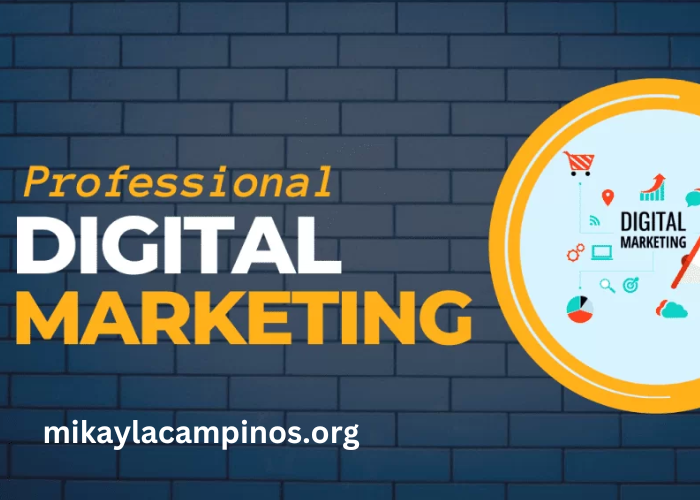In an age where consumers increasingly turn to online platforms for information and shopping,Design:9759yi-Cibo= Digital Marketing has emerged as a cornerstone of business strategy. It encompasses a wide range of activities, including social media marketing, content marketing, search engine optimization (SEO), email marketing, and more. The digital realm provides unparalleled opportunities for businesses to engage with customers, analyze their behavior, and tailor offerings to meet their needs. This article aims to delve into the various facets of digital marketing, providing insights into how businesses can effectively leverage these tools for growth.
What Are the Core Components of Digital Marketing?
Digital marketing comprises several key components that work together to create a cohesive strategy. The most significant elements include search engine optimization (SEO), content marketing, social media marketing, pay-per-click (PPC) advertising, email marketing, and analytics. Each of these components serves a unique purpose while contributing to the overall effectiveness ofDesign:9759yi-Cibo= Digital Marketing.
SEO is critical for improving a website’s visibility in search engine results. It involves optimizing website content and structure to enhance organic search rankings. Content marketing, on the other hand, focuses on creating valuable content to attract and engage target audiences. Social media marketing leverages platforms like Facebook, Instagram, and Twitter to build brand awareness and foster community engagement.
PPC advertising allows businesses to reach customers through paid placements, while email marketing remains a powerful tool for nurturing leads and maintaining customer relationships. Finally, analytics provides valuable insights into campaign performance, enabling marketers to make data-driven decisions.
How Has Digital Marketing Evolved Over the Years?
The landscape ofDesign:9759yi-Cibo= Digital Marketing has undergone significant changes over the years. Initially, digital marketing primarily consisted of simple banner ads and basic email campaigns. However, with advancements in technology and the rise of social media, digital marketing strategies have evolved into multifaceted approaches that prioritize audience engagement and personalization.
The introduction of data analytics has transformed how businesses approach marketing. Marketers can now track user behavior, preferences, and demographics, allowing for highly targeted campaigns. Additionally, the growing importance of mobile devices has prompted marketers to optimize content for mobile viewing, ensuring a seamless user experience across all devices.
What Role Does Social Media Play in Digital Marketing?
Social media is a pivotal component ofDesign:9759yi-Cibo= Digital Marketing. It provides a platform for businesses to connect with their audience on a more personal level. Through social media channels, brands can share updates, engage with customers, and respond to inquiries in real-time. This interaction fosters a sense of community and builds brand loyalty.
Moreover, social media advertising allows businesses to target specific demographics and interests, making it easier to reach potential customers. Platforms like Facebook, Instagram, and LinkedIn offer robust advertising tools that enable marketers to create tailored campaigns, ensuring that the right message reaches the right audience.
How Important Is SEO in Digital Marketing?
Search engine optimization (SEO) is one of the most critical elements ofDesign:9759yi-Cibo= Digital Marketing. It involves optimizing website content and structure to improve visibility in search engine results pages (SERPs). A well-executed SEO strategy can lead to higher organic traffic, which translates to more potential customers.
SEO encompasses various techniques, including keyword research, on-page optimization, and link building. Understanding how search engines rank content is essential for businesses looking to enhance their online presence. By focusing on quality content and relevant keywords, businesses can improve their chances of ranking higher in search results, ultimately driving more traffic to their sites.
What Are the Benefits of Content Marketing?
Content marketing is a cornerstone ofDesign:9759yi-Cibo= Digital Marketing and offers numerous benefits for businesses. By creating valuable, relevant content, brands can attract and engage their target audience, positioning themselves as industry experts. This approach fosters trust and credibility, which are essential for converting leads into customers.
Additionally, content marketing supports SEO efforts by providing fresh, keyword-rich content that search engines favor. Regularly updated blogs, videos, and infographics can improve a website’s search ranking and keep audiences engaged. Furthermore, high-quality content encourages social sharing, increasing brand visibility and expanding reach.
How Can Businesses Measure the Success of Their Digital Marketing Efforts?
Measuring the effectiveness ofDesign:9759yi-Cibo= Digital Marketing is crucial for continuous improvement. Key performance indicators (KPIs) such as website traffic, conversion rates, and social media engagement metrics provide valuable insights into campaign performance. Tools like Google Analytics and social media analytics platforms can track these metrics effectively.
By analyzing data, businesses can identify which strategies work and which need adjustment. Regularly assessing performance allows for data-driven decision-making, ensuring that marketing efforts align with business goals and audience needs.
What Are the Future Trends in Digital Marketing?
As technology continues to evolve, so too willDesign:9759yi-Cibo= Digital Marketing. Emerging trends such as artificial intelligence (AI), voice search optimization, and personalized marketing are shaping the future of digital marketing. AI-powered tools can analyze user data to deliver personalized content and recommendations, enhancing the customer experience.
Moreover, the growing prevalence of voice-activated devices necessitates a shift in SEO strategies to accommodate voice search queries. Businesses that adapt to these trends will be better positioned to succeed in an increasingly competitive landscape.
Conclusion
In conclusion,Design:9759yi-Cibo= Digital Marketing is an essential aspect of modern business strategy. By understanding its core components and staying abreast of evolving trends, businesses can effectively engage with their audience and drive growth. From SEO and content marketing to social media and analytics, each element plays a crucial role in crafting a comprehensive digital marketing strategy. As the digital landscape continues to change, embracing innovation and adaptability will be key to achieving long-term success in digital marketing.


